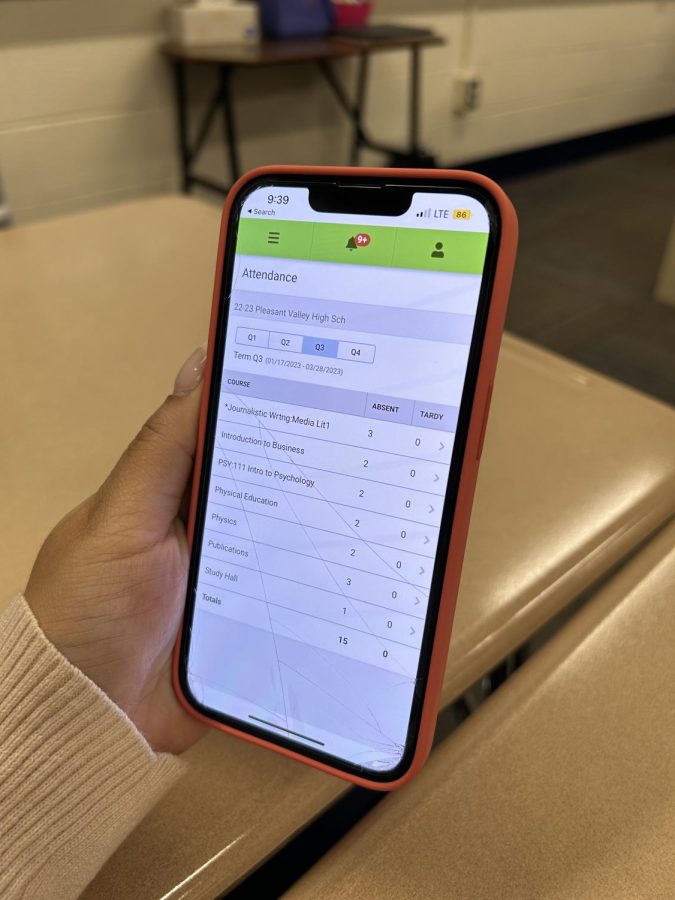The idea of perfect attendance is instilled in students from the beginning of their educational journey. However, the value society places on work and school has come to outweigh students’ physical health and mental well-being.
In elementary school, students receive an award for missing less than five days of school through an initiative called “Strive for Five.” Schools are providing an incentive to not miss school as early as five years old. While this may come with good intentions, such as making sure students are on track and, in turn, receive good grades, it takes an immense mental and physical toll on students’ well-being.
Many students will come to school while sick because they are worried about the work that piles up while they are gone. This mentality not only causes a person to put tasks before their basic health, but also causes harm to others’ physical health by unnecessarily spreading illness.
PV Senior Grace Tomlinson is one of many students who feels pressure to not miss school. “I come to school sick because it’s hard enough to get work done as is and when you miss a day, it’s worth it to feel sick at school and stay caught up instead of staying home and getting behind,” Tomlinson shared.
This mentality of having to put work above everything else is harmful to mental health. Pleasant Valley’s psychology teacher, Ann Berger, understands the pressure students feel to never be absent and believes it is harmful to their health. “We measure hours on task over quality of work, and I would argue, quality of life, because quality is rarely measurable. Busy and overworked does not make a happy, healthy learner. We ask students to dismiss their body’s message of fatigue and illness in our culture and “show up under all circumstances, putting all youth at risk,” she said.
Many states, including Illinois, have implemented mental health days as an excused reason for absence to try to tackle the issue of overworked students. There are many benefits to come from taking a mental health day, both mentally and physically, such as increased productivity, improved physical health and reduced feelings of burnout.
Learning to develop boundaries is another positive result of mental health days. Students who take mental health days are able to better recognize their own needs rather than the needs of others, such as school work or a record of attendance.
If students were able to utilize off days without feeling pressured to still perform academically, they would return able to more efficiently complete the work that was missed rather than feeling guilt over the time they missed.
















juli • Feb 17, 2023 at 11:23 pm
What about the mentioning of how students will somehow take advantage of mental health days just to skip?